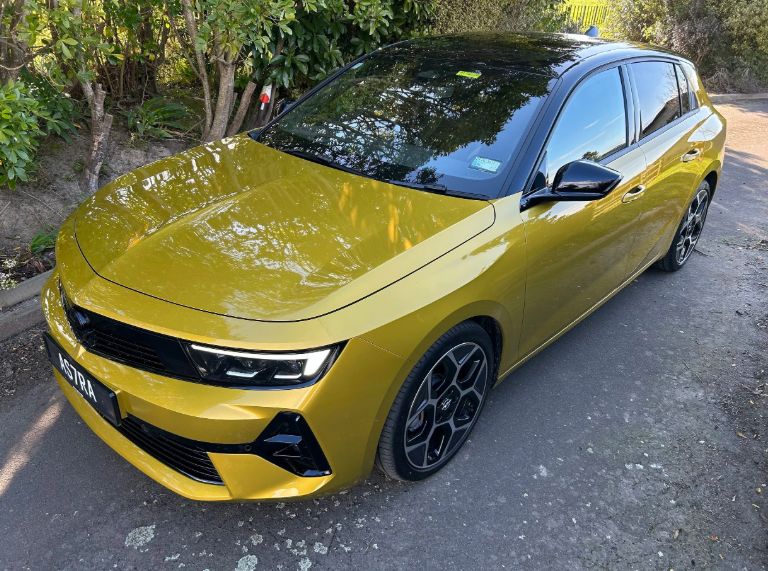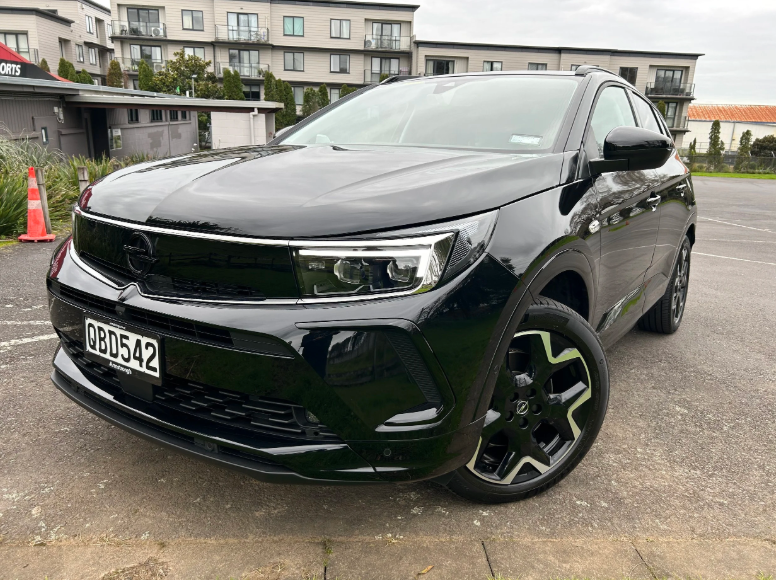LATEST NEWS
Opel under review: Low sales, EV slump has hurt
Richard Bosselman
October 17, 2025
Germany’s only mainstream brand returned in 2022 with a solid plan to exploit Clean Car rebates - those have gone, it’s struggling. End of story?
OPEL’S future is again on the line here.
Continuing with the sole German make to sell into the mainstream arena is under review by the distributor, a holding of Christchurch car magnate Rick Armstrong.
Auto Distributors NZ holds thought Chinese car makes it also holds show much better promise.
While no decision has been made, a brand that has delivered just 551 registrations since latest return in 2022 conceivably could yet be gone by Christmas.
Tough times for all electrics since consumer demand all but collapsed at the end of 2023 has been especially hard on Opel, as it relied wholly on selling electrified fare whose pricing was designed to attract a rebate that no longer exists.
However, there’s more pain now because sourcing from Europe has been affected by degraded exchange rates. If Opel stays, stickers might raise by as much as $5000.
Also weighing in is sentiment from Auto Distributors’ new boss, Simon Rutherford, that the electrics from Leapmotor, Dongfeng and Smart (which though Euro-centric is built by Geely) simply offer much better chance of success.
There is is still a chance Opel might survive - perhaps reducing to just the Mokka (top) and Astra (above) small cars - but going by sentiment expressed by Rutherford yesterday, the odds aren’t good.
“We're just working it out (Opel’s future),” he said at a media event to launch a new Leapmotor, the B10 medium electric crossover.
“Just to be clear, we haven't absolutely decided … do we stay, do we go? ….How do we make it work? Do we make it work? Do we put our attention into something else?
“That is where we are at and we are working through it.”
A fresh addition to the business, who before taking up his current position as managing director was running Ford New Zealand, this executive who had 30 years with the Blue Oval says Opel is currently in a state of pause.
No fresh product is incoming, stock held here has all but exhausted.
“The decision will be ‘is there a way forward, a better plan that allows us to focus on particular vehicles’ or are we better doubling down on the other brands that we have?”
There is no deadline for a final determination, but having it sorted before December 31 is a hope.
Recently he visited Opel headquarters in Russelsheim, Germany, and PSA in Paris, France.
Rutherford says whatever happens, Auto Distributors will continue to support Opel buyers and to honour any commitments.
“There's no issues in terms of looking after those vehicles.
“We're going to have the same network available to do that. We wouldn't walk away from customers or do anything like that.
“So whichever way we decide to go it's not an issue supporting those cars.”
After two failed attempts under Holden - first with Aussie-badged German-made cars in the 1990s, again in 2016 with the VXR performance family headed by the Insignia - when it was a General Motors’ make, Opel looked liked a better bet when it came back with Armstrongs.
The idea of offering Opels in only electrified format to tap into Kiwi love at that time for battery cars seemed a more solid proposal.
What also made it tasty was that Opel, divested by GM in 2017 to be reborn as a product of the French PSA group, had common platforms and technology used by the Peugeot and Citroen brands also held by Armstrong.
Rutherford reinforces the French makes, though ostensibly hurt by the same exchange rate issues as Opel and also low volume performers, are safe.
Opel’s pitch was to to price everything it sold for less than $80,000, the cut-off for the then Labour Government’s rebate.
The programme started started well, with the compact Mokka and smaller e-Corsa establishing quickly, and the Astra hatch also finding favour when it came later.
The make’s fourth product, the Grandland (above), was more niche and, as the previous generation car, the oldest and the only one with petrol electric. The full electric that has replaced it in Europe never came here.
Opel had barely ramped up to full supply and a nearly national representation when the market condition completely altered at end of 2023.
EV take-up simply froze as soon as the rebate was pulled on December 31. The sector felt more pressure when electric cars became subject to Road User Charges in April 2024.
EV volume in general has barely recovered since then and Opel was among brands particularly impacted.
Registrations data shows 2023 was the only three figure year, and even then just 361 cars were plated.
Only 81 Opels registered in 2024, 10 more than in the very first year. So far this year 38 have processed.
Conceivably, this latest re-introduction was a multi-million dollar exercise. Opel itself was reported to have allowed special pricing to enable the NZ gameplay. In returning here, it was creating a particularly distant market, the longest trip for any European brand. This time, unlike with the previous efforts, Opel does not represent in Australia as well.
In respect to the cost of re-introducing Opel, Rutherford simply says “ introducing any brand is an expensive exercise. But so is continuing to invest when you might have a better opportunity.”
Was Opel undermined by the current Government’s policy?
Rutherford says as much as the customer-facing CO2 penalties for high emissions vehicles and rewards for low-output products have gone, the CO2 reduction goals set for new vehicle distributors by the previous Labour Government are still largely in play.
With NZ and Australia’s guidelines set to combine at end of this year, the industry knows the imperative for including low-to-no CO2 cars in its fleets becomes more imperative over the next few years.
Those with a high or total percentage of fully electric cars will be at advantage and will have carbon credits they can sell to those in less fortuitous position. That role was set to be taken by Opel but can just as easily be shouldered by the Chinese brands, as they are all electric-focussed.
Intrinsic differences in clean air policies and carbon reduction goals now, compared to under Labour, are obvious but the industry is still coming to grips with the actual aspiration of the current administration.
It will be helpful for politicians to deliver greater clarity about this, as many distributors still feel electrified - so hybrids and range extenders - and fully electric cars are required to fuel future ambition. But the expected extent of that commitment seems a grey area.
“We (the industry) know that we want the Government to be more … bipartisan in terms of a strategy that is longer term and that can support all areas of the market.”
He says Opel’s strategy was patently put under significant challenge when the sales environment changed.
Notwithstanding, another factor is that China’s EV makers were far less prevalent then than they are now.
With 15 Chinese brands in the market now and at least three more to come by mid-2026, and all demonstrating eagerness to hit hard with high-tech and aggressively-priced product, the market condition has been radically re-set.
Rutherford says what has happened with Opel is symptomatic of issues the entire industry is facing. It is particularly challenging for any distributor taking cars from Europe, he thinks.
“We've had a significant deterioration in the NZ dollar, which has exacerbated the affordability and the price points for European source products in general.
“It wouldn't matter whether it's a BEV or an ICE or anything else. So it's just made them more expensive than they would've been.
“I think the bookends have moved in the market. I don't think it's a particular customer satisfaction issue with Opel. I just think it's a reality.”




